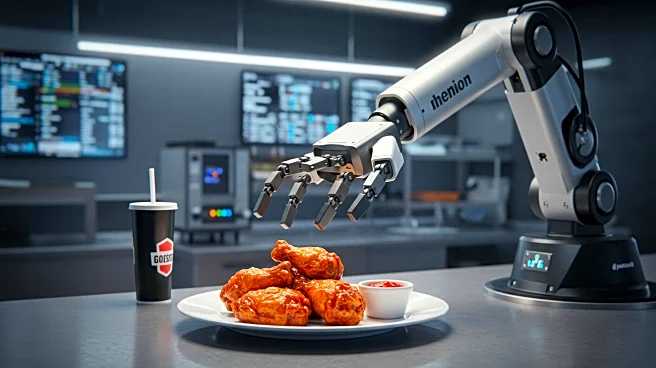What's Happening?
Wingstop is set to implement AI-powered 'Smart Kitchen' technology across its 2,000-plus U.S. locations by the end of the year. This technology aims to streamline operations, reduce workforce needs, and improve service efficiency. The AI system will optimize ordering processes and predict food demand based on various factors, including weather and local events. This initiative is part of a broader trend in the fast-food industry, where major chains like Yum! Brands are also adopting AI solutions. Wingstop's stock has surged following the announcement, reflecting investor confidence in AI's potential to enhance profitability through faster service and improved delivery times.
Why It's Important?
The integration of AI in Wingstop's operations highlights a significant shift in the fast-food industry towards automation and efficiency. This move could lead to reduced labor costs and increased profitability, as AI systems streamline processes and improve service speed. However, it also raises concerns about job displacement and the ethical implications of AI-driven pricing strategies. As AI technology becomes more prevalent, businesses and policymakers must address these challenges to ensure fair practices and mitigate potential negative impacts on the workforce.
Beyond the Headlines
The adoption of AI technology in fast-food operations like Wingstop's 'Smart Kitchen' could have broader implications for other industries, including retail and hospitality. As AI systems become more sophisticated, they may take on roles traditionally held by humans, leading to significant changes in employment patterns and skill requirements. Additionally, the use of AI in pricing and customer service could raise ethical concerns about privacy and fairness, necessitating regulatory oversight to protect consumer interests.









